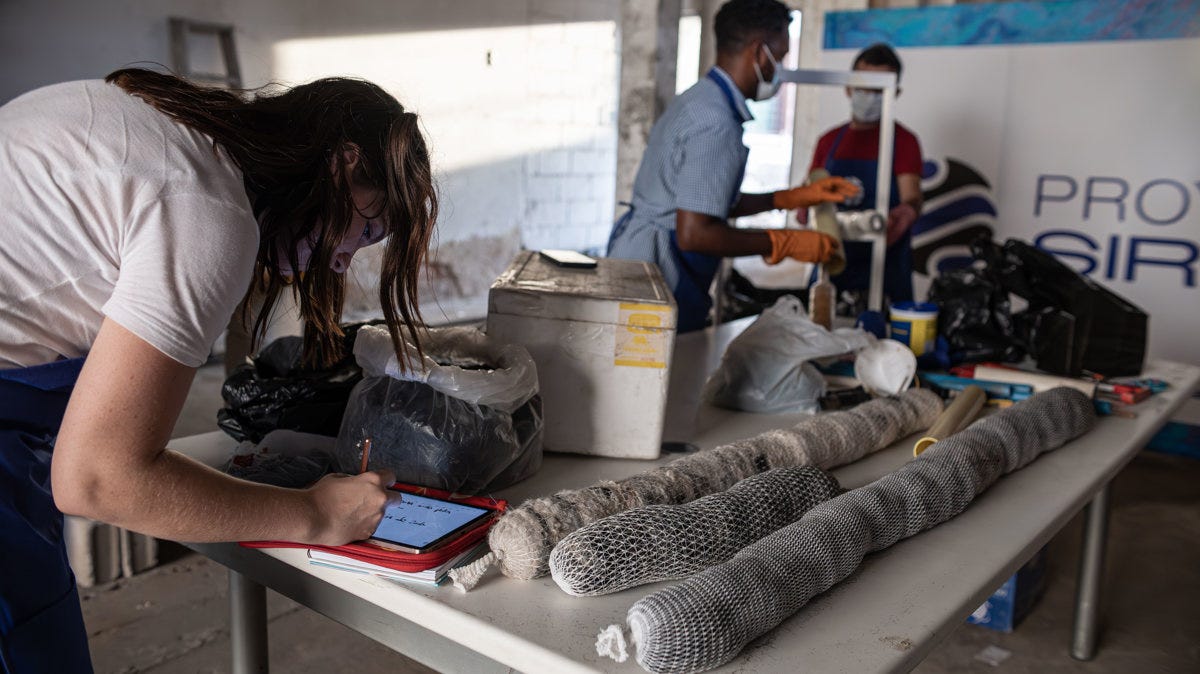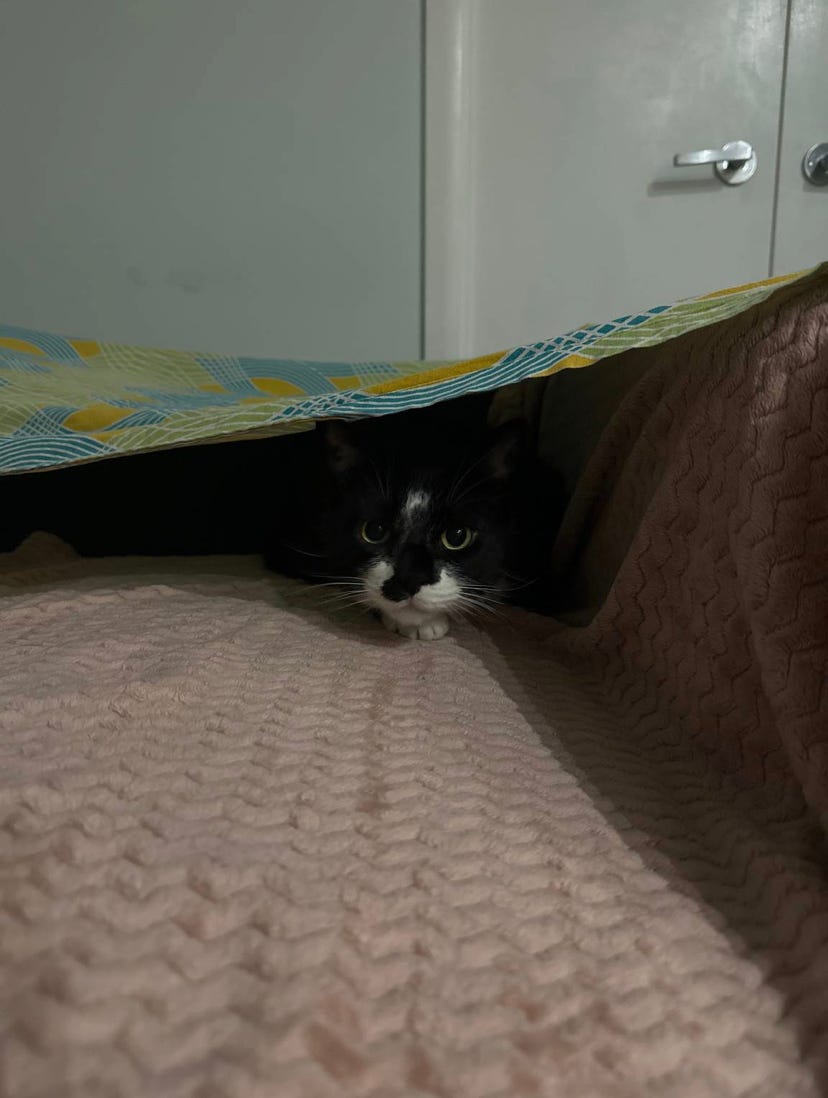This woman has found a hairy solution to solve oil spills 💇♀️🛢️
From locks to lakes
Today’s eco snapshot👇🏽
From locks to lakes: a hairy solution for oil spills
Startup of the week: Saathi Pads
5 brands that sustainably stand out
Some good news from around the world
3 ways I can help you on your sustainability journey
💇♀️🛢️From locks to lakes: a hairy solution for oil spills
Venezuela's Lake Maracaibo, once a symbol of the country's oil wealth, has been severely impacted by the crumbling oil industry. The lake, one of the world's largest and oldest, is now covered in iridescent slicks and neon green algae blooms that can even be seen from space.
The pollution is a result of decaying machinery and ruptures in the extensive network of underwater pipelines, with years of mismanagement and a crippled oil industry leading to a constant stream of crude oil contaminating the water.
Despite being home to endangered species like pink river dolphins and manatees, little has been done to clean up the lake.
To address this issue, 28-year-old environmental activist Estrach founded Proyecto Sirena, a national network of activists dedicated to saving Lake Maracaibo.
Inspired by a project that used human locks to clean up an oil spill in the Galápagos Islands, Estrach realized the potential of using hair as a cost-effective and sustainable solution.

With the help of volunteers and donated human and pet hair, Proyecto Sirena plans to stuff mesh nets with hair and place them in the lake.
These hair-filled nets will act as floating barriers, preventing the spread and separation of oil slicks. Additionally, they will use hair to create furry, mat-like devices for cleaning up the shore.
Estrach and her team are eager to put their innovative approach to the test and make a positive impact on Lake Maracaibo.
By repurposing salon waste and harnessing the power of community involvement, they hope to mitigate the effects of oil pollution and protect the vulnerable ecosystem of the lake.
Time for the quiz of the week ⌛
Answer at the end of the newsletter. No one (including me) can see your response so feel free to vote 😉
✨ Startup of the week- Saathi Pads
Plastic problem…Sanitary pads are typically made of plastic, with an average pad containing 3.4g of plastic. Unfortunately, once these pads are discarded, they can take anywhere between 500 to 800 years to decompose. An Indian brand has found a biodegradable alternative to address this issue.
Biodegradable breakthrough…Saathi Pads is transforming banana plant waste into biodegradable menstrual pads, providing a safer period option for more individuals. It takes just one banana plant to create 3000 pads. These pads are not only safe for the body but also for the community and the environment, as they are designed to degrade within six months.
The fibers are made from banana stems that are usually discarded by farmers.
Apart from banana fibers, it also uses bamboo fibers.
These can be disposed of in a waste bin and they would degrade naturally in 6 months.
Wholesome…Saathi is also working to reduce the stigma associated with menstruation. It provides hygiene education to underserved women and aims to make its pads more affordable and accessible for them. Additionally, for each pad they sell, Saathi gives one away for free.
✅ Brands that sustainably stand out
🇦🇹 Kern Tec- Fruits like apricots and plums have pits inside that are usually thrown away. This startup is upcycling them into plant-based foods.
🇬🇧 Pavegen- Making tiles that generate energy as you walk and run on them, helping to change the world one step at a time.
🇩🇪 Airpaq- Upcycling discarded seatbelts and airbags into bags.
🇫🇷 Amatera- Climate change is having a negative impact on coffee. This startup is solving it using the concept of plant cell culture.
🇩🇪 WeDoSolar- Making vertical solar panels that you can mount in your balcony.
Get access to 100+ sustainable brands like these by upgrading to a paid subscription
😹 Some Good News
🪴 Hull's Groundbreaking Greenery
Hull is set to become the first UK city to allow people to grow food on disused council land, aiming to bring communities together, reduce antisocial behavior, and improve the appearance of the city.
🚲 Riding the Wave of Sustainable Transportation
In 2022, bicycle sales in Germany hit a record high, with e-bikes making up almost half of the sales. E-bikes are important for reducing carbon emissions and pollution, driving the demand for them in Europe, and promoting sustainable transportation.
🌞 Illuminating the Future of Electricity
Solar PV power is projected to be the cheapest new source of electricity worldwide by 2050. It is estimated that 70% of the world's electricity will come from variable renewables.
🌎 3 ways I can help you
📞 Interested in chatting about sustainability and climate change? Book a free call here
✍🏼 Want to be featured in this newsletter and a LinkedIn post? Submit your story
💁🏼 If you’re a planet-friendly brand, I can help you with your blogs, newsletters, case studies, and whitepapers
Click that 💚 if this added some value to you.
Have a great weekend and see you next week😊








